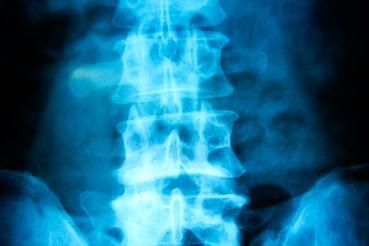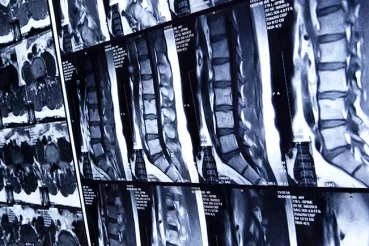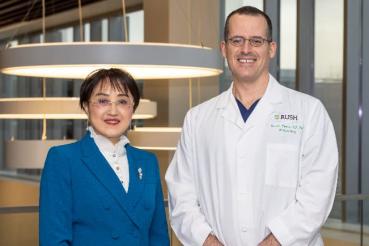Spine surgeons across the world are experiencing effects of COVID-19, including canceled procedures, changes in clinical roles, anxiety and risk of exposure to the disease themselves due to insufficient protective equipment. An international team of researchers reported these findings recently in the Global Spine Journal.
Using a 73-question survey administered between March 27 to April 4, the researchers gathered information about spine surgeons worldwide, including topics such as personal perspectives, family life, attitudes and coping strategies; caring for patients; implications of government and leadership; financial impact; research; education and training, and future challenges and impact.
The study evaluated survey responses from 902 spine surgeons from the membership of AO Spine, the largest society of international spine surgeons in the world, which has more than 6,000 members from 91 countries and seven global regions. The study is the first to assess global variations on impact of this pandemic among health care professionals, in this case spine surgeons.
With some geographic variations, the majority of the surgeons reported that 75% of surgical cases were canceled each week. Surgeons also reported experiencing elevated anxiety and uncertainty, and nearly 95 percent expressed a need for formal international guidelines about how to manage patients with COVID-19.
“Some institutes have some form of guidelines here and there, but standardized formal ones don’t exist in the community and are needed,” said Dr. Dino Samartzis, associate professor in the Department of Orthopedic Surgery at Rush Medical College, and the primary investigator of the study. “This study shows that we need to prepare for other disasters moving ahead or risk history repeating itself.”
The study showed that one in four surgeons reported working outside their normal scope of practice. About 83% of surgeons reported having access to COVID-19 testing, but only 7% of surgeons reported being tested for COVID-19. In general, 13% of surgeons noted that they would not be compelled or not likely to disclose to patients if they were found positive for COVID-19.
The study also found that 50% of the surgeons surveyed lacked adequate protective equipment. In addition, 37% of the surgeons reported having at least one chronic disease, such as high blood pressure, placing them at a higher risk from COVID-19.
The study also highlighted that up to 97% of all surgeons were interested in online education. “With the uncertainly of how this pandemic plays out in the upcoming months and the need to get back to a recovery phase for all spine specialists, traveling to meetings, workshops and other educational events will be a challenge,” Samartzis said. The study further noted that telemedicine during this period has also taken prominence.
Samartzis also noted that, “The study further brings to light that regional variations also exist. This is very important for institutes, academia and industry to take stock in their current and future planning, decision-making and more personalized approaches to help facilitate and provide the necessary technology for the spine specialists to optimize their patient care and outcomes.”
Dr. Howard S. An is the Morton International Endowed Chair Professor and director of the Spine Surgery Fellowship program in the Department of Orthopedic Surgery and a co-investigator of this study.
“During this pandemic, the spine specialist has been a forgotten soldier," he said.
“The impact this has had on their practice and patients is far-reaching since a surgical practice, in particular, supports and works with so many health specialists and support staff, and manages patients in immense pain and disability looking for solutions. If their practice is affected, everyone else will be affected. Society as a whole will be, to some degree, affected even further.”




